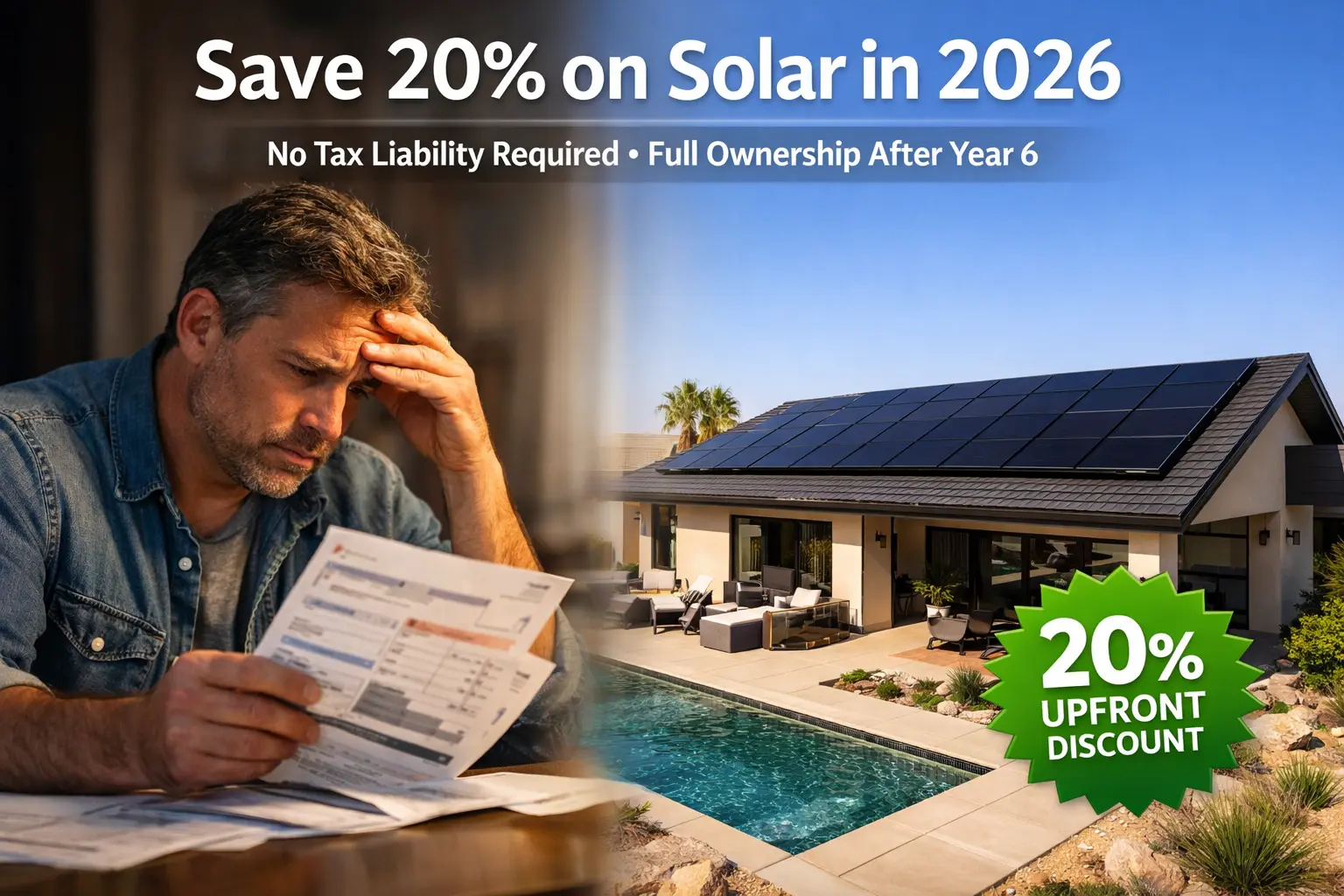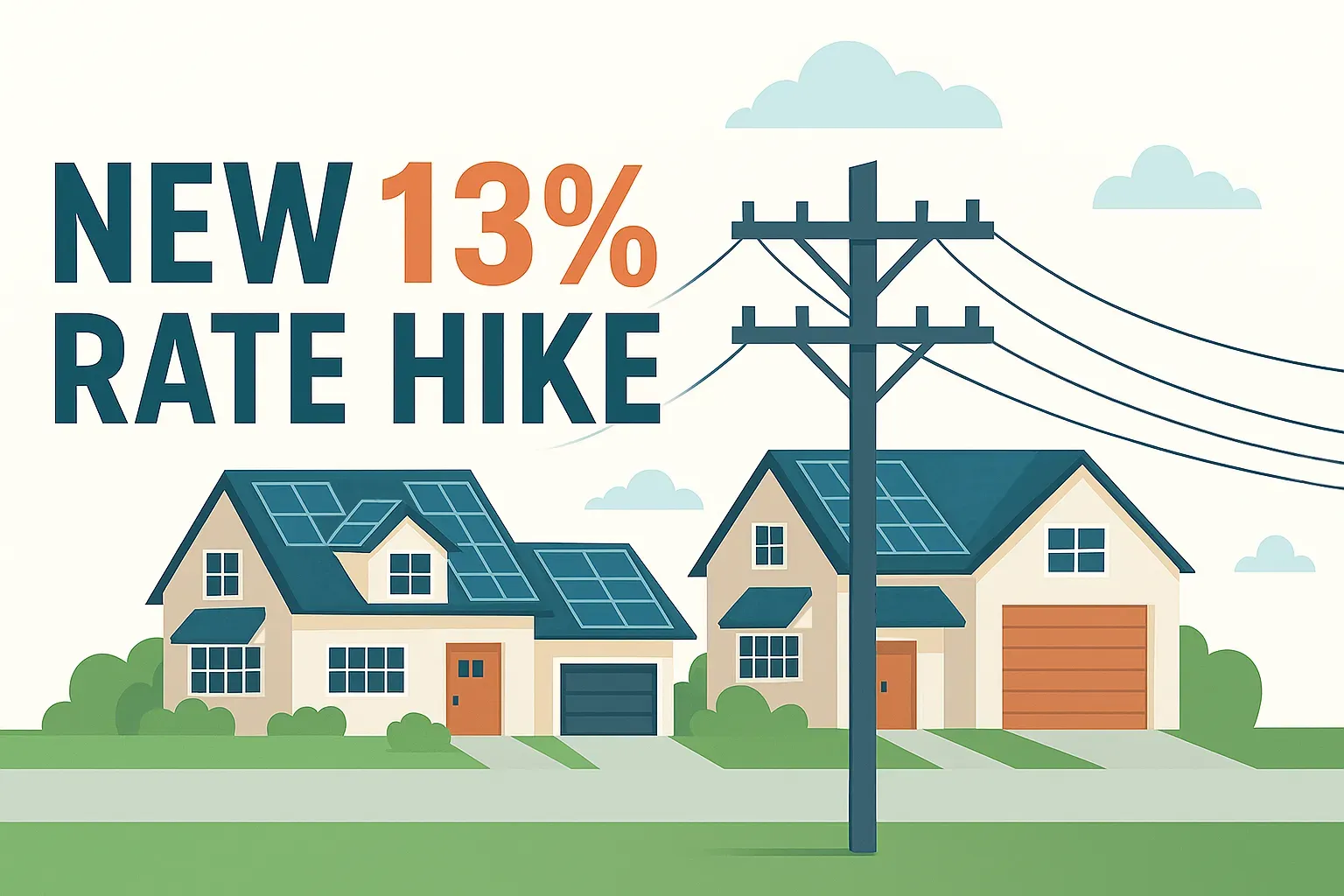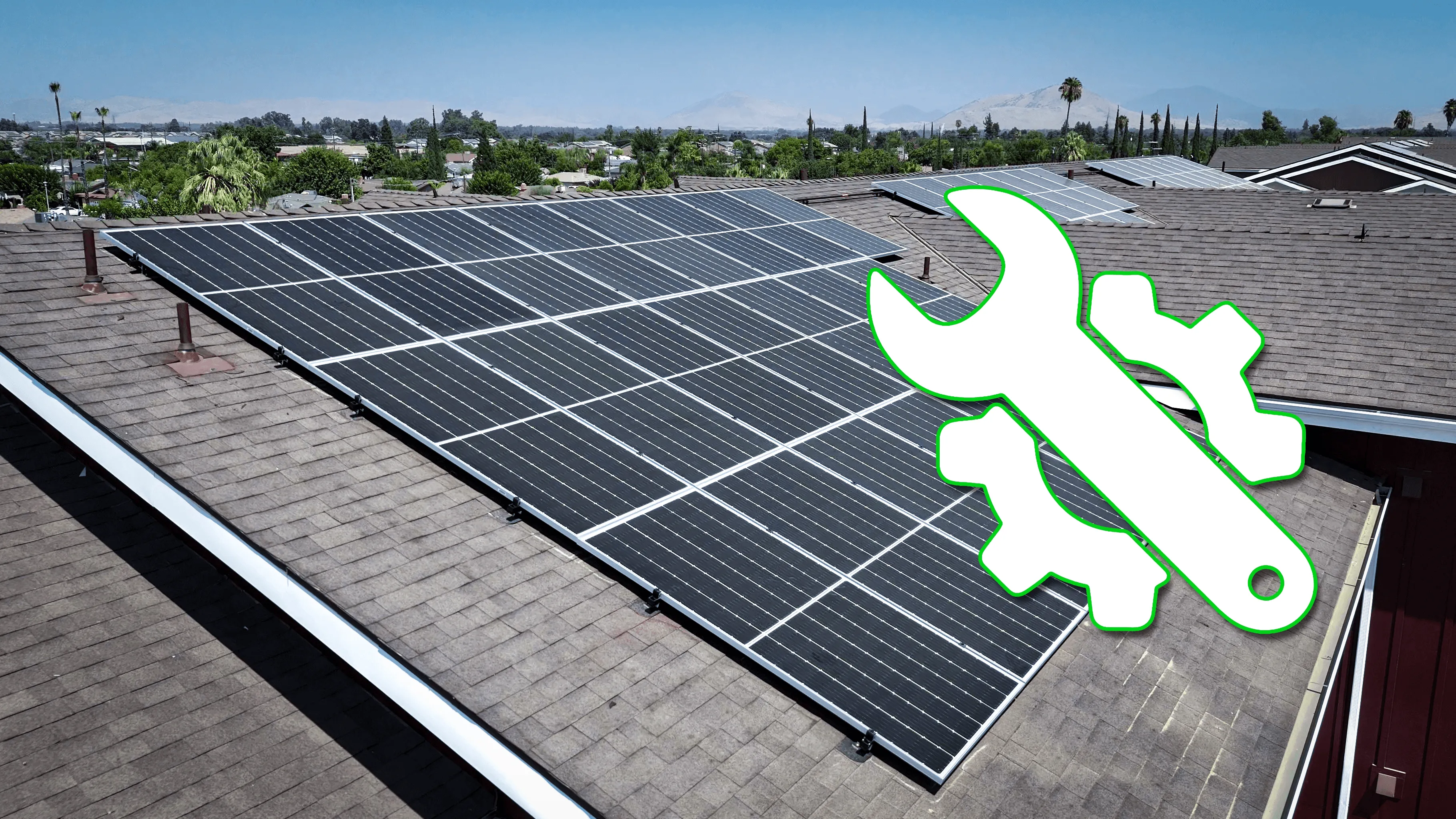Published On:
June 22, 2023
Main electrical panel considerations are vital to deciding to switch to solar energy.
But before you jump on the bandwagon and start reaping the benefits of solar power, you need to ask yourself an important question: Does your main electrical panel need an upgrade to handle solar power?
Let's start by understanding how your main electrical panel works.
Consider it as the heart of your home's electrical system - just as your heart pumps blood to every part of your body, the electrical panel ensures (or sometimes called circuit breaker) that electricity is distributed to all your appliances, from the refrigerator and the microwave to your home's heating and cooling system.
Each appliance has a certain electrical demand.
Your appliances at home have various electrical demands and consumption rates.
For instance, your refrigerator may need around 100-200 watts, and your microwave might consume about 1000 watts.
The total demand of all your appliances combined should not exceed the capacity of your panel, usually rated in amps (like 100A, 150A, or 200A).
Now, let's introduce solar energy into the equation.
Suppose you decide to install a 400-watt solar panel system on your rooftop.
This system generates electricity that feeds into your electrical panel, supplementing the power you receive from the grid.
It's a brilliant way to save on your energy bills, right? Absolutely! But there's a little more to it.
The added power from the solar panel can increase the load on your electrical panel.
If your panel is already close to its capacity with your existing appliances, the additional load from the solar system could tip it over its limit. This could lead to overloaded circuits and frequent tripping of circuit breakers, which is inconvenient and a potential fire hazard.
The age of your panel is also a crucial factor.
If your home is older and the panel hasn't been updated for a while, it might not be equipped to handle the new power from your solar panels.
Modern panels are designed to cope with higher loads and have more safety features, making them better suited for solar integration.
So, how do you know if your panel needs an upgrade?
Age of Your Current Panel: If your home is older and the electrical panel hasn't been upgraded in several years, it might not be capable of handling the increased load that a solar system would introduce. Modern electrical panels are designed to handle more electrical load than older ones.
The capacity of Your Current Panel: The electrical panel is rated for a certain amount of amps (commonly 100A, 150A, or 200A in residential homes). If your panel is already near capacity with your current electrical usage, adding a solar system could overload the panel.
Local Building Codes and Utility Requirements: Some local building codes and utility companies have specific requirements for electrical panels in homes with solar power. For example, they may require a certain minimum amperage or specific safety features. Check with your local building department or utility company to determine these requirements.
The Size of the Solar System: Larger solar systems generate more electricity and, therefore, may require a larger capacity electrical panel.
Type of Inverter: The type of inverter you use for your solar system could also impact whether you need to upgrade your panel. Some types of inverters, such as microinverters, might not require as large of a panel because they convert the electricity at the panel level rather than sending all of the electricity to the main electrical panel at once.
Read More:
2023 The Best Home Solar Battery Backup 2023 Pros and Cons of Solar Battery Storage Day to Night: How Solar Battery Backup Systems Keep Your Home Running
Remember, every home is different. The capacity of your panel, the age of your home, your local building codes, and the size of the solar system you're planning to install all play a part in deciding if an upgrade is necessary.
For example, a 400-watt solar panel might not require an upgrade in a modern home with a 200-amp panel, but it could in an older home with a 100-amp panel.
It's important to ensure your electrical panel can handle the additional power if you're considering transitioning to solar energy.
Frequently Asked Questions:
What is the role of my home's main electrical panel in transitioning to solar energy?
The main electrical panel, like the heart of your home's electrical system, distributes electricity to all your appliances. Its capacity is crucial in determining if it can handle the additional load from a solar power system.
How does solar energy affect my electrical panel's load?
Solar panels generate electricity that feeds into your electrical panel, adding to the power you receive from the grid. This increased load can be a concern if your panel is already near its capacity limit.
How do I know if my electrical panel needs an upgrade for solar power?
Consider the age of your panel, its amp capacity, local building codes, utility requirements, the size of your solar system, and the type of inverter used. If your panel is old or near its capacity limit, an upgrade might be necessary.
What are the risks of not upgrading an inadequate electrical panel when going solar?
If the solar system overloads an already full panel, it could lead to overloaded circuits, frequent tripping of circuit breakers, and even potential fire hazards.
Does the size of the solar system I chose impact the need for an electrical panel upgrade?
Larger solar systems generate more electricity and may require a larger capacity electrical panel.
What should I do if I'm unsure about my electrical panel's capability for solar energy?
It's best to consult with a solar energy contractor, like Option One Solar, to assess whether your current electrical panel is adequate or if an upgrade is necessary.
At Option One Solar, we're committed to making this transition as smooth as possible for you. With our over 50 years of electrical experience, we're well-equipped to guide you through every step of your solar journey.
We'll help assess whether your current electrical panel is up to the task or if an upgrade is necessary. Our team will handle everything from the initial consultation through the design and installation of your solar system to post-installation support.
Switching to solar should be a seamless and rewarding process. Let Option One Solar use our extensive knowledge and experience to help you navigate this path safely and effectively.



